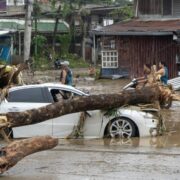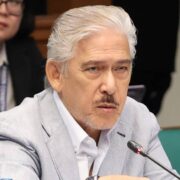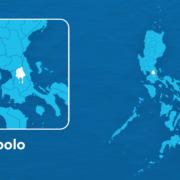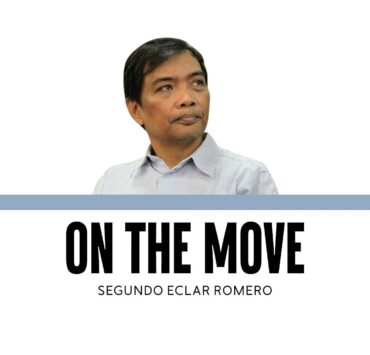PH democracy: Is this the endgame?

Oxford—Everything, everywhere, all at once. That’s how I felt shortly before heading out of the country again for yet another academic engagement. Barely a week after returning to the country following my visiting scholar stint in Canada, where I met senior policymakers, academics, and community members from across the country, I headed out to the United Kingdom to further hone my public policy analysis under a Jardine scholarship at the University of Oxford. Thanks to the generous (and highly competitive) scholarship and the impeccable academic environment at Oxford, I looked forward to finally carving out some time to fully focus on research, deep writing, and, overall, to embracing a measure of scholarly solitude.
Truth be told, my mind was tethered to developments back home, especially after an intense week that started with covering the historic “Trillion Peso March” and, over the following days, holding long conversations with leading experts and citizens of the country. In fact, just before I flew out of the country, I hosted a quadrilateral episode for my “Deep Dive” podcast with former Supreme Court Associate Justice Antonio Carpio, a titan of our West Philippine Sea struggle; former Associate Justice Adolf Azcuna, a leading jurist who helped frame both the 1973 and 1987 Constitutions; and former Political Affairs Secretary Ronald Llamas, a rockstar pundit and a beating heart of social democracy in the Philippines. At the core of our discussions was a singular question: Are we peering into the abyss?
Just as I warned earlier this month (see “Fighting corruption: Brazil’s hard lessons,” 9/16/25), comparative politics in developing democracies shows that anticorruption investigations tend to become polarizing, politicized, and ultimately destabilizing. This is especially the case if institutions are weak, clowns and crooks dominate elected offices, and the public is fed up with continuous cycles of corruption and misgovernance. As dramatic as it has been, the revamp in the government—starting from the change of leadership in both the Senate and the House of Representatives, as well as the comprehensive purge of top leaders in the Department of Public Works and Highways—is far from sufficient. People are asking for blood, and heads have to roll. To begin with, the people’s outrage is palpable. From journalist Kara David to celebrities, such as Vice Ganda, prominent personalities are openly calling for the literal demise of corrupt officials or the reinstatement of the death penalty: “Sana mamatay sila!” “Bring back the death penalty for corrupt officials. Jail even their families.”
Moreover, there seems to be no center of gravity, nor a clear road map. It’s far from certain where and how far President Marcos is willing to take his newly found anticorruption crusade when corruption is so endemic and could reach the highest echelons of power.
To put things into perspective, Sen. Panfilo Lacson has claimed that almost all senators, with the notable exception of principled progressives such as Sen. Risa Hontiveros, made shady insertions in the previous fiscal year. “It was humongous … I have never seen such amounts,” the current chair of the Senate blue ribbon committee claimed, referring to at least P100 billion in de facto pork barrel funds.
Just like Brazil in the mid-2010s amid the “Operation Carwash” corruption scandal, we might end up with the collapse of the entire political center. And this brings us to the third factor, namely the vultures circling and ready to destabilize and dismantle our democracy altogether.
The riots in Mendiola by unidentified elements are just the tip of the iceberg. “If only Sara Duterte were not the Vice President, you guys would have taken over,” an administration ally shared in a closed-door meeting. He was referring to rumors of a possible coup. No less than Pulitzer Prize-winning journalist Manny Mogato referred to an “attempt to unseat” the President, with “a large Christian-denomination sect [meeting] with a top Army commander days before the protest” to trigger an en masse defection in the barracks on the back of the massive anticorruption protest on Sept. 21. In fairness, the Armed Forces of the Philippines has vehemently rejected the rumors, which are yet to be substantiated.
What is clear, however, is that the next “Trillion Peso March” may turn less peaceful if the chief perpetrators continue to enjoy impunity and the notorious Discayas are given de facto immunity under a witness protection program. Criminal liability is what people are demanding beyond the seeming theatrics of hearings and investigations.





















